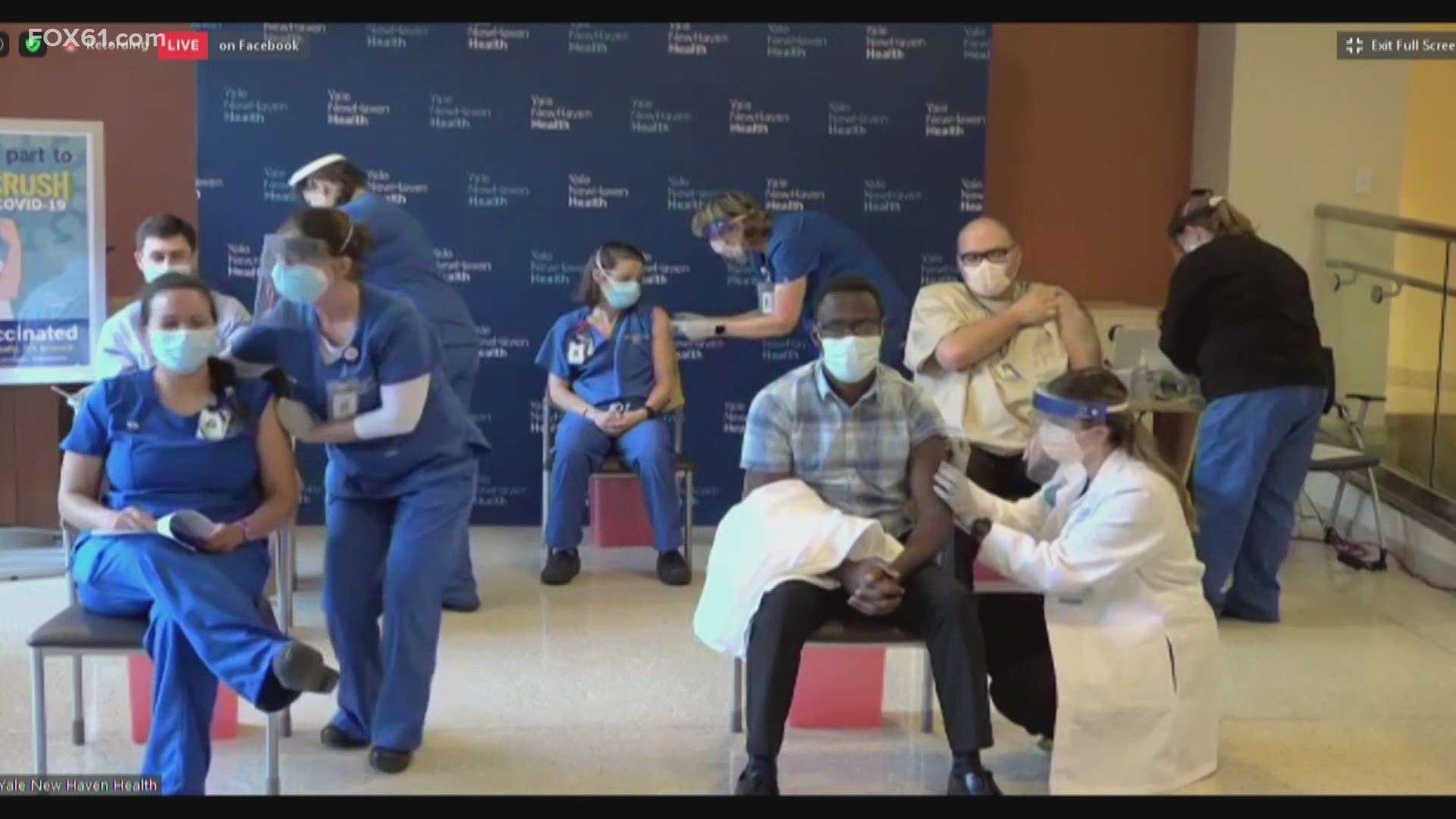NEW HAVEN, Conn. — Yale-New Haven Hospital received nearly 2,000 doses of the Pfizer/BioNTech coronavirus vaccine Tuesday morning. And one of the first five frontline workers to receive the vaccine was the principal investigator, who studied the safety and effectiveness of this vaccine.
"As a dad of three kids, who are never impressed by anything I do anyway, and as a person of color, I think it’s been really gratifying to be part of this process of the Pfizer vaccine," said Dr. Onyema Ogbuagu, a Yale School of Medicine infectious diseases specialist.
The Yale-New Haven Health System has cared for more Covid patients than any other provider group in the state.
"I am a mom, a nurse, a daughter and I haven’t seen my mom in almost a year now," said Mackenzie Kelly, a nurse in Yale's Emergency Department. "So, I’m grateful. We’ve seen a lot of really bad stuff in the emergency room. So, this is hopeful."
"This vaccine is safe, it’s effective and it is the way out of this pandemic," said Yale-New Haven Health Chief Clinical Officer, Dr. Thomas Balcezak. "It is critically important that everyone in the state of Connecticut get this vaccine and across the country."
But, how long will the Covid vaccine be protective?
"Are we gonna do this again next year," Dr. Ogbuagu wondered. "Will this be like the flu shot? We don’t quite know yet."
He noted that those, who took part in clinical trials had robust antibodies at least up to their two-month follow-up.
"We do expect that the vaccine should do better than natural immunity, which is what individuals develop after they’ve recovered from Covid, which lasts just a few months after infection," he added.
"Wear masks, stay far apart, wash our hands, even after you’ve been vaccinated because until we get to 80% of our community vaccinated and we are not there yet," Dr. Balcezak said.
When the Moderna vaccine receives emergency use authorization, perhaps later this week, Yale-New Haven will utilize that vaccine too. Both require a course of treatment of two shots.
The Pfizer vaccine is administered three weeks apart. Moderna's requires a four-week separation.

